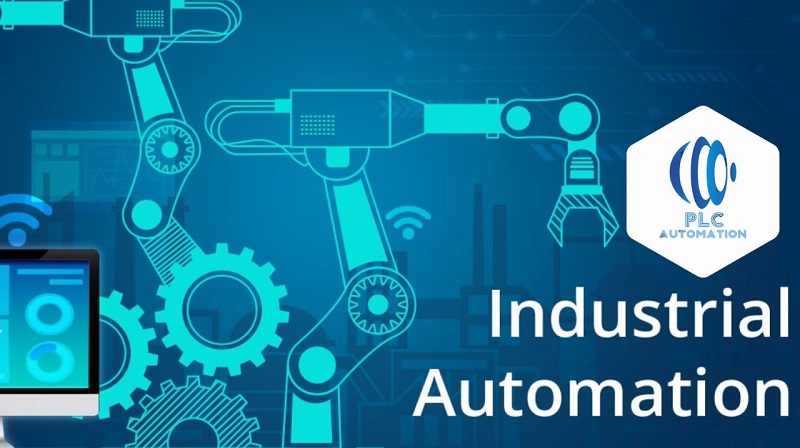
A Driving Force in Industrial Automation named PLC Automation PTE Ltd
- by PLC
- Jun 15, 2023
In today's fast-paced industrial landscape, automation systems have become indispensable for optimizing operations and achieving higher levels of efficiency. One notable player in this field is PLC Automation Pte Ltd, a renowned company that specializes in delivering cutting-edge solutions for industrial automation. In this blog, we will explore the significance of automation systems and shed light on the contributions of PLC Automation Pte Ltd in revolutionizing the industrial sector.
Understanding Automation Systems:
Automation systems refer to the integration of advanced technologies, software, and hardware components to automate industrial processes. These systems aim to streamline operations, minimize manual intervention, and enhance productivity. By employing automation, industries can achieve improved efficiency, reduced costs, increased safety, and enhanced product quality.
Key Benefits of Automation Systems:
- Increased Productivity: Automation systems eliminate the limitations of manual labor and perform tasks with precision and consistency, resulting in higher production rates and faster cycle times.
- Enhanced Safety: By automating hazardous or repetitive tasks, automation systems reduce the risk of accidents and injuries, creating a safer working environment for employees.
- Improved Quality Control: Automation ensures consistent product quality by minimizing human error and closely monitoring critical process parameters.
- Cost Reduction: Automation systems optimize resource utilization, minimize waste, and reduce operational costs, leading to higher profitability for businesses.
PLC Automation Pte Ltd is a reputable company that has established itself as a leading provider of automation solutions. With its expertise in programmable logic controllers (PLCs), the company has made significant contributions to industrial automation. Here are some key aspects of PLC Automation Pte Ltd's offerings:
- Programmable Logic Controllers (PLCs): PLC Automation Pte Ltd specializes in the design, installation, and maintenance of PLC systems. PLCs serve as the core component of automation systems, providing control and monitoring capabilities. The company's team of experts ensures that PLCs are customized to meet specific industrial requirements, delivering seamless automation solutions.
- System Integration: PLC Automation Pte Ltd excels in integrating diverse automation components, including sensors, HMIs, actuators, and communication networks. This expertise enables the company to create comprehensive automation systems that optimize industrial processes.
- Consultation and Support: PLC Automation Pte Ltd goes beyond system implementation by providing consultation services to assess automation needs and recommend tailored solutions. Their experienced professionals offer ongoing technical support, ensuring smooth operation and minimal downtime.
- Cutting-Edge Technologies: Keeping pace with advancements in automation, PLC Automation Pte Ltd stays at the forefront of technology. The company leverages state-of-the-art tools, software platforms, and communication protocols to deliver innovative automation solutions that cater to evolving industrial requirements.
Industrial automation systems have revolutionized manufacturing and production processes across various industries. These systems integrate advanced technologies to streamline operations, enhance productivity, and improve overall efficiency. Understanding the key components of an industrial automation system is crucial for anyone involved in industrial operations or interested in the field. In this blog, we will delve into the fundamental elements that make up an industrial automation system and explore their significance in optimizing industrial processes.
Programmable Logic Controllers (PLCs):
One of the central components of an industrial automation system is the programmable logic controller (PLC). PLCs are ruggedized computers that serve as the brains of the system. They receive input signals from sensors and switches, process the data, and generate output commands to control various industrial devices such as motors, valves, and pumps. PLCs are programmable, allowing operators to configure them to perform specific tasks and automate complex sequences of operations.
Human-Machine Interface (HMI):
The human-machine interface (HMI) is the component that enables interaction between humans and the industrial automation system. It provides a graphical interface through which operators can monitor and control the system's operations. HMIs display real-time data, alarms, and system status information in a user-friendly format, facilitating efficient decision-making and troubleshooting. With the advent of touchscreens and advanced visualization tools, HMIs have become more intuitive and user-friendly.
Sensors and Actuators:
Sensors and actuators are vital components in an industrial automation system as they facilitate the exchange of information between the physical processes and the control system. Sensors detect changes in physical variables such as temperature, pressure, flow rate, and position, and convert them into electrical signals that can be processed by the automation system. Actuators, on the other hand, receive commands from the control system and initiate physical actions such as opening or closing valves, starting or stopping motors, and adjusting process parameters.
Communication Networks:
Industrial automation systems rely on robust communication networks to connect various components and enable seamless data exchange. These networks facilitate the transfer of information between PLCs, HMIs, sensors, and actuators. Commonly used communication protocols in industrial automation include Ethernet, Profibus, Modbus, and Profinet. A well-designed network infrastructure ensures reliable and secure data transmission, enabling efficient control and monitoring of industrial processes.
Supervisory Control and Data Acquisition (SCADA) Systems:
SCADA systems play a vital role in industrial automation by providing centralized control, monitoring, and data acquisition capabilities. These systems gather data from multiple sensors and devices distributed throughout the industrial plant and present it to operators in a comprehensive manner. SCADA systems enable real-time visualization of process parameters, historical data analysis, alarm management, and remote control functionalities. They enhance operational efficiency and facilitate informed decision-making.
The successful implementation of an industrial automation system relies on understanding the key components that constitute it. Programmable Logic Controllers (PLCs), Human-Machine Interfaces (HMIs), sensors, actuators, communication networks, and SCADA systems are integral parts of an efficient automation solution. These components work together to enable seamless control, monitoring, and optimization of industrial processes. By harnessing the power of automation, industries can achieve enhanced productivity, improved quality, and increased safety while remaining competitive in today's dynamic market.
Automation systems have become vital in the modern industrial landscape, enabling businesses to thrive in a competitive environment. PLC Automation Pte Ltd has emerged as a prominent player in this domain, delivering advanced automation solutions powered by programmable logic controllers (PLCs) and other essential components. By harnessing automation technologies, industries can achieve increased productivity, enhanced safety, improved quality control, and cost reductions. PLC Automation Pte Ltd's expertise and dedication to innovation have made them a trusted partner for businesses seeking to optimize their industrial operations and embrace the benefits of automation.













